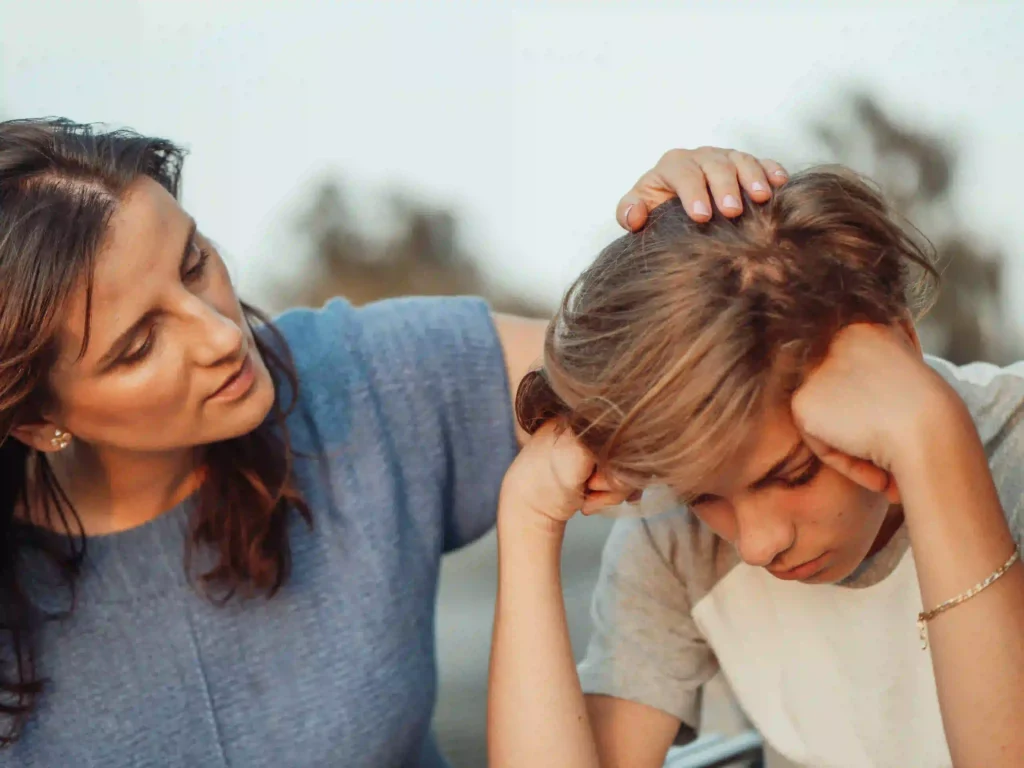Telling your kids that you and your spouse are getting divorced is not something you ever planned to do. This conversation is one of the most difficult ones you will have with your children. As an adult, you may know that ending your marriage may be better for everyone in the long term.
But that doesn’t lessen how painful it will be to tell your children how their family and life are about to change. While talking to your kids about divorce won’t be easy, you can do it in a way that respects their feelings and reactions.

Talk as a Group
If possible, you and your spouse should talk with your children all together. Although your kids may be of different ages, explain the information in a way that everyone can process.
Both parents being present gives the children a chance to hear each of you say a significant sentence, “This is not your fault.” When kids first learn that their parents are splitting up, it is difficult for them to process. Children tend to internalize their parents’ conflicts and believe that they are to blame for them.
If you and your ex can talk beforehand, it would be best to get on the same page about how to break the news to your kids and reassure them. By presenting the information to them together in a calm way, you can help lessen the impact.
Age-Appropriate Discussions
Naturally, you are not going to talk to your teen and three-year-old in the same way. Children will require age-appropriate communication regarding the subject. Younger kids between 3 and 5 may not be able to understand what divorce means for their lives.
Explaining things in simple terms about parents living in two houses and loving them very much may be all that they can process. Listening to questions and watching for any change in behaviors is a good approach for this age group.
Kids ages 6-11 are going to be able to understand more about their surroundings. They will probably require an explanation that offers concrete details about where everyone will live and how time-sharing will work.
Children in this age group may seek emotional reassurance from both parents as they work through their new circumstances. Keeping things simple and sticking to a consistent routine provides structure and stability and can help reduce stress.
Children 12 and up are likely to have questions and may need to explore the topic beyond their parents’ initial explanations. Parents should remain open to communication. That being said, it’s important to maintain boundaries and not overshare details about the divorce with precocious kids.
Some older children adapt to divorce by trying to become their divorced parent’s caretaker or confidant. Parents need to maintain a healthy boundary in the parent-child relationship and seek support elsewhere.
There are no “Right” Reactions
Every child is different, and it’s not always possible to predict how one will react to a divorce over another. Some children are actually relieved when they hear the news because they are overwhelmed by the tension in the home.
Another kid in the same family may be angry about the divorce. No reaction is wrong. Kids need to work through their emotions, and they should not be told that there is a right or wrong way to feel about the situation. However, just like parents, kids sometimes struggle with processing the pain of divorce. If you think your children need support, you could find a therapist for them to talk with during this transition.
Attorney and mediator Karyn Youso of First Look Family Law has extensive experience assisting families during divorce and can help you connect with the right resources and determine your next steps. Please contact us to schedule a consultation.










